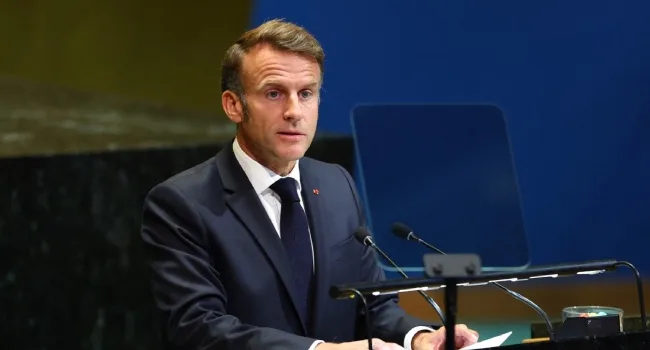French President Emmanuel Macron on Sunday unveiled a new cabinet, largely composed of familiar faces, under Prime Minister Sébastien Lecornu, as he battles a fractious parliament and an ongoing political crisis.
The reshuffle comes nearly a month after Lecornu’s appointment as Macron’s seventh prime minister, and amid mounting pressure from opposition parties. Despite expectations of a broader political reset, many of the top posts went to returning figures.
Bruno Le Maire, who served as economy minister from 2017 to 2024, was reassigned as defence minister, a pivotal role given France’s rising tensions with Russia over the war in Ukraine. Roland Lescure, a Macron loyalist, was named the new economy minister and now faces the difficult task of delivering a politically sensitive austerity budget.
Several key ministers kept their positions. Jean‑Noël Barrot remains foreign minister, while Bruno Retailleau, the interior minister who has pledged a crackdown on illegal immigration, and Justice Minister Gérald Darmanin also stay in office. Culture Minister Rachida Dati, who is due to stand trial for corruption next year, retained her post as well. The presidency announced 18 cabinet appointments, with more expected in the coming days.
The reaction from opposition leaders was scathing. Far-right leader Marine Le Pen described the new cabinet as “pathetic,” and Jordan Bardella, president of the National Rally, accused the government of offering “continuity, not change.” He reiterated threats of a no-confidence vote, warning Prime Minister Lecornu that the choice is “either a break with the past or a vote of no confidence.”
On the left, Socialist parliamentary leader Boris Vallaud accused Macron’s team of deepening the country’s political chaos, stating, “They lose elections but they govern. They don’t have a majority but refuse to compromise.” Jean-Luc Mélenchon, head of the France Unbowed party, condemned what he called a “procession of revenants,” suggesting the cabinet is a tired retread of figures from the political right. “The countdown to get rid of them has begun,” he warned.
The political stakes are high for Lecornu, whose appointment was meant to stabilise Macron’s second term. Analysts suggest his position is precarious, with some predicting he could be toppled by the end of next week if he fails to secure cross-party support. Mujtaba Rahman, Europe director at the Eurasia Group, said Lecornu’s chances of survival are “dwindling,” while Paul Taylor of the European Policy Centre called the current state of French politics “a mess,” increasingly driven by “anger and emotion rather than rationality.”
France remains mired in legislative gridlock following Macron’s failed gamble on snap elections last year, which resulted in a deeply fractured parliament. Public debt has surged to record highs, with the debt-to-GDP ratio now the third-highest in the European Union, behind only Greece and Italy. Macron, despite plunging popularity and mounting pressure to resign or dissolve parliament, has insisted he will complete his term, which ends in 2027.
As the political crisis deepens, Lecornu has promised concessions, including not forcing through the budget without a vote. Yet opposition parties remain unconvinced, and the path forward remains uncertain. Whether this reshuffle can break the deadlock or merely prolong the dysfunction remains to be seen.
AFP


